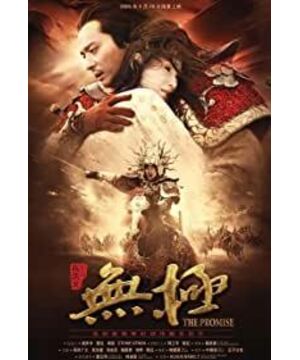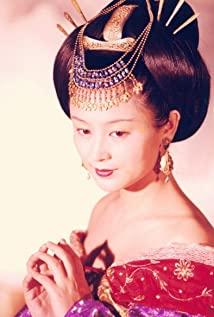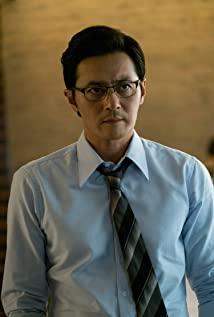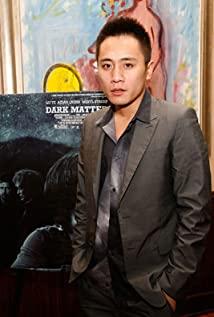I picked up "The Promise" again with a normal heart and read it again, and suddenly felt that everything was clear - so it was. After I figured it out, I found out that this is a very good story. The plot is very rigorous and perfect, but when the director presented the film, there were too few line hints. Here, I will briefly sort out the lines of the entire story of "The Promise", giving an echo to the few supporters and an explanation to the masses who do not know the truth.
The progression of the plot of "Promise" and the transformation of the characters' encounters are motivated by the full-fledged gambling, which is the major premise and key point of the entire film. Manshen represents destiny, which is clearly stated at the beginning of the film, and the development of all plots in the film begins with Manshen. The English name of the film is "The Promise", which I personally think is better than the Chinese name.
Manshen likes to play with the world, and she often makes bets with people to let them make choices. This is the plot that many people criticize. I have seen a lot of criticism articles saying "how can there be such a god who has nothing to do all day", "only Chen Kaige can come up with such a god" and so on. In fact, it is logical to replace Manshen with destiny. To reiterate, it was said at the beginning of the film that Manshen is the messenger of fate.
Manshen appeared three times in the film. The first time was a bet with Qingcheng that "you will never get the true love of others", and the second time was a bet with General Guangming that "the owner of the flower and armor will kill you." the king" and "the allure is mine". Everyone has to make a choice, and what Qingcheng chooses is love (this is the meaning of "Qingcheng"), but every time she sees the wrong person (the king at first, then the light). She began to think that Guangming jumped the waterfall for her, so she fell in love with Guangming, but thought of her own destiny, so she left. Later, I finally disregarded my fate and stayed with Guangming (finally I saw the wrong person). When she knew that the person who saved her was Kunlun, her emotions had already poured into the light. It was not until finally Kunlun put on the robe of death to reverse the time and gave her a chance to choose again.
Guangming chose victory (this is the meaning of "Guangming"). Originally, he wanted to go back to save the king, but Kunlun killed the king, which means that Guangming lost the battle. He doesn't give up, he wants to win the bet, and victory is everything to him. He recovered Qingcheng not because of love, but because he wanted to win the bet with Manshen. Wuhuan used "victory" to tempt Guangming, and Guangming immediately abandoned Qingcheng and returned to the palace. The last battle of the light is at the time of judgment. He wants to exchange his life for the heart of the city, and it is also not because of love, but because of the desire for victory. After the Battle of Horseshoe Valley, Guangming never won another victory, even in two single-handed battles. When Guangming was about to die, Qingcheng leaned on his chest, and he shed a single tear of sadness because of his guilt, and his destiny was in harmony.
This is the two lines of Qingcheng and Guangming, and viewers who have watched the film seriously should be able to understand it. This is the bright line.
So, what are the dark lines? Manshen is the messenger of fate, and everyone is under the control of fate. It is not difficult to think that the five people in the film have a bet with Manshen. The bet between Qingcheng and Guangming is a bright line, and the bet between Wuhuan and Guilang is a dark line. (Kunlun's bet is included in Guilang's bet, which will be discussed later)
Manshen and Wuhuan's bet is "you will never be trusted", and Wuhuan's choice is to make others suffer (this is "wuhuan"). meaning). This explains the koan case of the "Battle of Mantou". Some people would say that I made up such a bet specifically for the koan case of "mantou". No, this bet has a reasonable hint in the film.
Wuhuan has several characteristics: he doesn't want to see other people happy; he wants everyone in the world to be his slave; he doesn't trust anyone. Wuhuan's attack on the Snow Country is to find slave killers, and the killers are prepared for the light when they attack the royal city in the future (in order to control the killers and increase the speed of the killers, Wuhuan made the robe of immortality). He attacked the royal city under the banner of catching the princess, not for women, but for power, in order to make everyone in the world his slave. After the king was killed, what he went after was not Qingcheng, but the murderer who killed the king, so that he could shirk his responsibility logically. This is a very common method in power struggles, and it only needs normal thinking to understand, but many viewers have misinterpreted it as a woman (for steamed buns). The passage of Mantou at the end does not constitute evidence of the "mantou bloody case", on the contrary, it is a reminder of the unhappy bet. Wuhuan just knew that when Kunlun killed the king, he wanted to kill and hide the news. This is the evidence that Wuhuan attacked the king's city for power. Later, he asked Kunlun to tell the truth because he wanted to completely destroy the light.
After the trial, Wu Huan tied the three of them, but at the last moment let the light down. Many people feel that this is in conflict with Wuhuan's character of not trusting anyone, but here is another tip to trust the bet. Wuhuan won a big victory, but he was always shrouded in a bet full of gods. He wanted to challenge his fate and prove that he was wrong for "not being trusted" in order to achieve the final victory (Bantou is the first challenge, here is the last time). This is also the disposition of Wuhuan's desire to enslave others. But he failed and was not trusted until the end (credible people).
In fact, Wuhuan's bet is the earliest bet, even earlier than Allure. The film begins with a post-war scene. In that war, Xiao Wuhuan was rescued by Manshen and made a bet. After that, Xiao Wuhuan took Xiao Qingcheng as his first experiment.
Ghost Wolf's bet is about his clan, "Snow country people will never escape the fate of slaves", his choice is sacrifice (or selflessness?) - this is the meaning of "Ghost Wolf". If no one wears Wuhuan's robe of immortality, the people of the Snow Country will be slaughtered, and if the ghost wolf wears it, the people of the Snow Country will become slaves, and Kunlun grew up from slaves. Wuhuan trained the killer and made preparations for more than ten years (the time when Kunlun grew up) before attacking the king's city. Killing Guangming was Guilang's first mission, and Wuhuan promised that if he completed this mission, he would restore the people of the Snow Kingdom to freedom (of course he lied to him). The ghost wolf did not complete the task, because he encountered Kunlun, and he was unwilling to hurt his own people. He also wanted to use Kunlun to achieve victory in the bet (Kunlun is a native of the Snow Kingdom, as long as Kunlun is freed from slavery, the fate of the clan will be freed), he took off the robe of immortality and handed the flower armor to Kunlun, that is I want to exchange my own death for Kunlun's freedom. Of course, he was once again deceived by Wuhuan.
Guilang's bet should have been made before Wuhuan attacked the Snow Country (and possibly a bet between the people of the Snow Country and Manshen).
Kunlun's bet is very simple, including "the fate of a slave forever" in Guilang's bet (about the meaning of the name "Kunlun"...). After the Snow Country was captured, Kunlun became a slave and grew up in slavery. Originally, slaves would not stand up, but Kunlun is a native of the Snow Country and is born to run, so he ran in an emergency. The original owner of Kunlun was shot to death by Guangming, and he became Guangming's slave again. Soon after Guangming made Kunlun free, Kunlun voluntarily became Qingcheng's slave. In the end, Kunlun could have been free, but in order to give Qingcheng a chance to choose again, he put on the robe of immortality (the people of the Snow Kingdom can have a speed beyond time when they put on the robe of immortality), and forever became Qingcheng's slave and lover. slave.
Everyone in the film has their own destiny (a bet full of gods), and everyone is trying to get out of the control of fate, which constitutes the development line of the film's plot. The storyline of the whole movie is quite complete, and the lines are arranged ingeniously, making it a good movie.
However, it is not excellent. In general, "The Promise" has several obvious shortcomings:
1. The special effects production is very poor - especially the beginning of the bull run;
2. The lines are relatively rough, this is relatively hurt, but fortunately not many;
3. The Mandarin of several leading actors is not good enough , which has become a joke for many netizens, but I think this is not so serious in this movie (everything is exaggerated in the trend of criticism); Obviously, the vast majority of viewers do not understand why.
Among them, the biggest contradiction is the contradiction between the hidden lines and the plain lines. The plot lines of this film are not easy to handle. A little more hints will appear too straightforward and will fail to impress the judges; and as it is now, it is too deep for the audience to understand. In a word, the director didn't handle it well, and Chen Kaige thought too much. This is the film's most serious flaw. The storyline of the film is actually quite complete and rigorous, but there were mistakes in presentation. The so-called "blood case caused by a steamed bun" was originally just a farce of grandstanding, but it turned out to be a weapon for followers to snatch the right to speak.
At the beginning, because of the director's big words, "The Promise" became the target of public criticism, and even repeatedly made fun of star events, proving that Chinese audiences cannot be offended. But now that the five-year period has passed, it is no longer necessary to hold on to the inherent prejudice and cling to your own pride to trample this film under your feet.
Let go of the impetuous mind and watch this movie, it will be more exciting.
View more about Wu ji reviews











